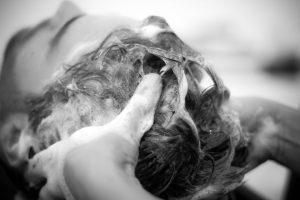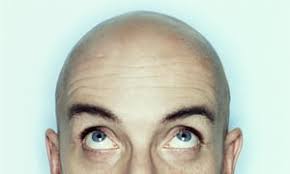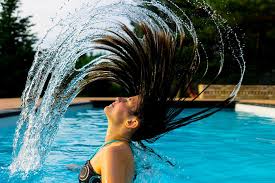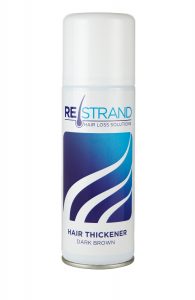Home » Hair Loss Help (Page 6)
Category Archives: Hair Loss Help
Use Caution When Considering Natural Hair Loss Remedies
In today’s society, the term ‘natural’ seems to denote that whatever the term is describing is also ‘good’. While it may be true that many natural things are good for you, the two terms do not always equate to being the same thing. There are many dangers found in nature, and just as we have several substances that are beneficial to our health, there are also many that are detrimental. The same goes for hair loss treatments.
So-called hair loss experts will tout many big ideas about what types of natural remedies might help a person suffering from hair loss, but they often make these claims as blanket statements without considering the individual needs and situations of the people they are giving their information to. There are also many theories which come from the distant past which all seem to have a solution to the problem of thinning hair. However, these old ideas are generally based on old wives tales, hearsay and home-based concoctions- anything but any actual scientific proof. There are a plethora of natural remedies that abound on the internet, and while most are harmless, some of them inevitably come with the risk of causing much more harm than good to your hair.
One example of a natural hair treatment that can have adverse effects, for people who are already suffering from certain conditions, is called Amla. Amla is a very common ingredient found in natural hair loss remedies, and while it may have some positive effect on hair growth of perfectly healthy people, Amla is also linked to lowering blood sugar levels, slowing liver functions, and increasing blood flow. That means anyone with liver disease, diabetes, or any other condition where proper blood flow is a factor in the severity of it, must approach this remedy with caution.

Another common idea that people have is that the fenugreek plant can help curb hair loss. There is currently no scientific data to support those claims, but there are plenty of studies which have been done to show that fenugreek can be harmful. Fenugreek can have adverse effects on the stomach when taken in large quantities which can be especially harmful for pregnant women as it can cause the uterus to contract. Fenugreek is also linked to lowering blood pressure so should be used with caution when used in conjunction with certain prescription medications and for those suffering from blood disorders. If you are planning on trying this ‘miracle cure’, it is probably wise to review your strategy and seek medical advice.
Although most of the natural remedies that are advertised to help with hair loss are ineffective and sometimes dangerous, there are other natural things that you can do to rule out the possibilities of self-inflicted hair loss. It is true that there isn’t much that we can do about genetic, male-pattern baldness, but when genes aren’t responsible for the condition there are a few things that can be done. For one thing, when hair loss is caused by dietary needs or stress, the problem can be reversed by correcting the underlying problem that is causing the condition. When hair loss occurs as a result of scalp-related diseases or excessive dryness, there are many treatments that can help by (re)creating a healthy environment for which hair can grow. By finding the underlying cause of your hair loss, you will be much more successful in treating your condition.
For a completely safe solution to hair loss please see our hair thickening spray which helps to hide hair loss.
Steer Clear of Hair-Thickening Shampoos
It may seem a bit obvious to those who have never had to deal with the issue of hair loss but putting a lot of products on the scalp that do not completely rinse off causes excessive build up over time, and can be counterproductive.
It can be quite difficult to see through the maze of products that all promise to be the next best thing when it comes to revitalizing the hair. Each product on the shelves says that it makes hair thicker and fuller, but the problem is that they never say just how they go about achieving the claims they make.
For the distraught person who is suffering the unfortunate experience of losing their hair, all of these products begin to look great, and the promises they make begin to make a lot of sense, even without any kind of proof or explanation. The companies that sell hair loss shampoos often create products that make the scalp feel tingly and fresh, and that can be a convincing feeling to those looking for a fast solution to a complex problem. These same companies understand the emotional drive that gets people to buy their products and they do a great job with capitalizing on that fact.

The tingly feeling on the scalp coming from hair loss shampoos drives sales and is often caused by the inclusion of too many ingredients in the formula. These ingredients are used specifically to provide a clean feeling, but when it comes down to whether these ingredients are actually making the hair any cleaner, it is quite clear that they are not. What they are doing is making the shampoo even more complicated which makes it harder for the body to handle.
Another problem with hair thickening shampoos is that they begin to damage the hair when used at high frequencies. In fact, almost every kind of shampoo can damage hair because it strips away so much of the natural oils and moisture that should be left alone. The key to maintaining healthy hair is finding the balance between how often the hair is washed and how much of the body’s natural oils remains in the hair and on the scalp. There are many hair loss shampoos that actually make it more difficult for the scalp to recover because it is being continually stripped clean of the oils it uses to protect itself. Couple that with the excessive build-up left behind by the shampoo, and the result is a condition that is anything but conducive to healthy hair growth.
A simple rule of thumb for a healthy and well-functioning scalp is that it is always better to use shampoos with fewer ingredients and with simpler formulas. Shampoos that completely rinse out of the hair when used will not create any chemical build-up, and as a result, it becomes easier for the scalp to function as it should. When complex hair care products are used, it is important to keep them off the scalp to prevent any unnecessary irritation or reaction that could very easily make the problem worse than it needs to be.
For a safe solution to hair loss check out our hair thickening spray.
A New Hair Loss Treatment May Be Closer Than We Think
If you are growing tired of going over the same old articles describing methods to regrow hair that have been around for ages, join the club. There seems to be no limit to the number of studies which have been done on hair transplants, hair-thickening shampoos, and topical treatments, and they all lead to a similar result. The end of the road for almost every known hair loss treatment is that it works sometimes, and other times it doesn’t. Even if you are one of the lucky few that current hair therapy works for, there is still a degree of success that comes into play and you won’t know how successful your treatment has gone until a few months have passed. On top of that, the cost and effort required to make most of the current methods work can be a bit unrealistic for many people.

It is high time to find a different approach, and luckily there are several brilliant minds working to make new discoveries all the time. One of these is a process in which pattern baldness can be stopped, and even reversed by using cell therapy in the affected areas. Androgenic alopecia is the most common cause for pattern baldness in both men and women, and it is caused when certain cells called dermal sheath cup cells are damaged by androgen hormones. The cells that are affected by the androgen hormone have receptors as part of their makeup which makes them naturally predisposed to getting killed off after there has been a lot of exposure to the hormone. Interestingly, only a portion of the hair on a person’s head has dermal sheath cup cells that have receptors for the hormone, which is the reason that only a part of a person’s head will go bald. Most of the cup cells that rest at the base of the hair follicles at the sides and back of the head are devoid of the receptors making them naturally immune to the hormone.
This new cell therapy method focuses on taking those dermal sheath cup cells from the areas of the scalp where they do not have receptors for the damaging hormone and repopulating them into the affected areas. The idea behind this form of cell therapy is that once these new cells take hold in the affected zones, there should be a permanent solution that works extremely well in growing healthy and natural hair without the need for expensive surgeries and/or long-term dedication to maintaining a topical treatment regimen.
Other potential positives for a treatment of this kind, are that the hair loss industry would be able to step away from the dangerous and unpleasant side effects that are common with the current methods. Side effects such as the loss of libido and difficulty in maintaining erections during sex are very common with some of the current medications and are, needless to say, quite unwelcome. Other side effects include headaches, loss of appetite, and difficulty in sleeping, to name just a few. Some of the more serious potential side effects that can be seen on the label of one of the most famous drugs for hair loss, Propecia, include foggy mind, chronic depression, and suicidal thoughts. The other most common hair loss treatment, Rogaine, has been known to cause a wide variety of troubling side effects as well, and that leaves very few other options that could be considered generally safe.
As time goes on, all we can hope is that the science behind our hair loss problems continues to mature. Discoveries and new methods like the one mentioned in this article are exactly what we are looking for, and we have to say that the news is very exciting. Let’s see where this new school of thought takes us.
For those requiring support with hair loss now our instant hair loss concealer could be the solution.
Frightening New Information on Finasteride
Sometimes in life, we are faced with very difficult decisions that have the potential to alter our lives in irreversible ways. If you are one of the millions of men or women who has begun to think about, or has already begun, a hair loss treatment plan, it is likely that you know just how difficult it can be to choose the best and most trusted method of saving your hair. As with almost everything in life, hair loss treatments come with a bit of risk which balances out the potential benefits. Choosing the one that is best for you, therefore, greatly depends on how those risks and benefits appear to you. One of the most talked-about hair loss drugs lately is the repurposed prostate drug called Finasteride. Better known by the brand name, Proscar, this drug has just had a new side effect listed on its label.

As a hair loss treatment, Finasteride is quite effective. There have been a few notable long-term studies that have cited almost 80% success rates in the men and women who took the medicine. That is a fairly respectable success rate for a medicine of this kind, so it is clear why it has become so popular among so many different types of people. The way Finasteride works is by inhibiting the DHT in the system. DHT is the primary cause of pattern baldness and by internally curbing the hormone, the condition also begins to go away. Finasteride has a few things in common with its cousin Rogaine which is that it goes after the DHT, but where it differs is that it is taken internally. Rogaine is a topical treatment comprised as a completely different drug, but the effects are very similar with both products. Finasteride take much longer to begin working as well, and that is mainly due to the fact the treatment is taken in tablet form.
Finasteride produces results, that much is clear, but what is also clear is that there are some side effects that anyone interested in this drug should know about. The most commonly complained about side effects are related to sexual function. In fact, the reports and complaints came in so strongly that an in-depth analysis and further study was ordered by the Food and Drug Administration (FDA) in the USA back in 2010 to understand the connection between the sexual side effects people were experiencing and the medicine itself. The result of the study was that up to 15% of men suffered some form of sexual discomfort and/ or dysfunction and the results prompted the FDA to oblige any company selling the drug to list sexual side effects on the label. Some of the most common side effects cited were reduced sex drive, erectile dysfunction, and reduced semen discharge.
There have been other side effects listed for this drug as well. People have reported feeling dizzy, weak, and faint when taking the medicine, and there have been problems with rashes, swollen scalp tissue, and headaches too. As with all medications, there is no guarantee that any given person will experience any of the side effects, but it is always good to know what is possible before starting a treatment plan. If you are thinking that the benefits can outweigh the risks for you, have a talk with your doctor so that you can get the best advice possible before you begin.
For a perfectly safe and instantly solution why not consider a spray to hide hair loss.
Enjoy the pool this summer but stop harmful chlorine damage
In the summer months, when the weather starts to get warmer, there is nothing better than heading to the nearest pool to cool off. For those that suffer from hair loss, a simple trip to the pool can be a cause for concern, but it doesn’t have to be. While hair thickening spray can help to bring back the confidence of having a fuller head of hair, many become concerned over the possible damage that chlorine can cause hair. However, with a bit of preparation before going to the pool and some easy to follow guidelines for after, a trip to the pool doesn’t have to damage your hair or knock your confidence.

The Effect of Chlorine on Your Hair
The majority of pools add chlorine to the water to stop the formation of bacteria and to keep the pool safe to use. The side effect to the added chlorine is that it begins to remove the natural oils in hair; oil is used as the natural barrier against damage. With repeat exposure to chlorine, hair can start to show the signs of damage, becoming increasingly drier, brittle and often frizzy.
The levels of chlorine in a pool would have to be substantial to cause these effects instantly, but the damage that can accumulate over time can be concerning to those who already have damaged hair or who suffer from genetic baldness or other types of hair loss. While the chlorine can’t be removed from public pools, the effect it has on hair can be severally reduced.
Preventing Chlorine Damage
There are a number of easy ways to minimise chlorine damage, whether you swim regularly or just take a trip to the pool on hot days. Implementing a few prevention techniques will take the worry out of going for a swim and help your hair to stay in top condition.
- Invest in a high-quality swim cap– A swim cap is ideal for frequent swimmers who want to completely remove the worry of chlorine damaging their hair. Not all styles of swim cap are the same, with some providing more protection than others, so finding one that fits snuggly is vital.
- Shampoo and condition your hair– To combat chlorine stripping your hair of its natural oils, make sure that after every trip to the pool you use natural oil boosting shampoos and conditioners. To keep your hair in good condition, giving it back the oils it needs is very important.
- Benefit from hair pampering– Indulging in a pampering session of leave-in conditioner for your hair every couple of weeks, especially during swim season, will help to keep it in good condition. Using deep conditioners will ensure the nutrients in your hair are replenished after swimming.
- Add a new barrier to your hair– With chlorine breaking down your hairs natural barrier, adding another barrier can prevent excess damage from chlorine. This can be easily achieved by wetting your hair before a swim. Even more protection can be gained by using spray conditioners after dampening your hair to stop the strands absorbing chlorine.
Nobody should have to avoid the pool because of concerns over hair loss and chlorine damage. There are many options available to those that have experienced hair loss and with our easy to use spray on hair thickener to maintain quality coverage, confidence doesn’t have to be lost in or out of the pool.


Recent Comments